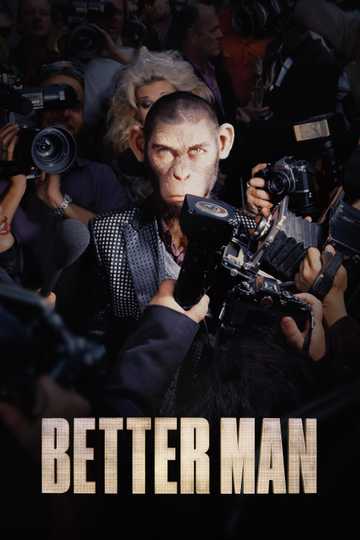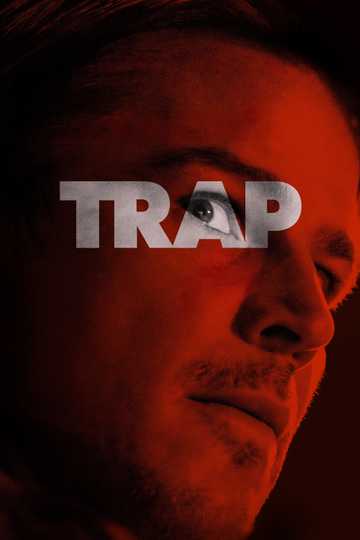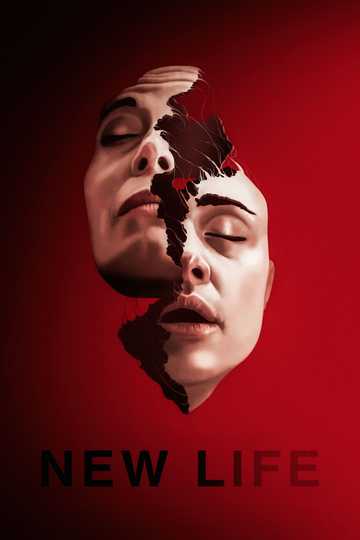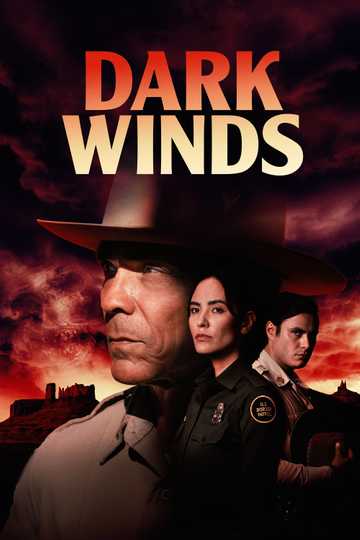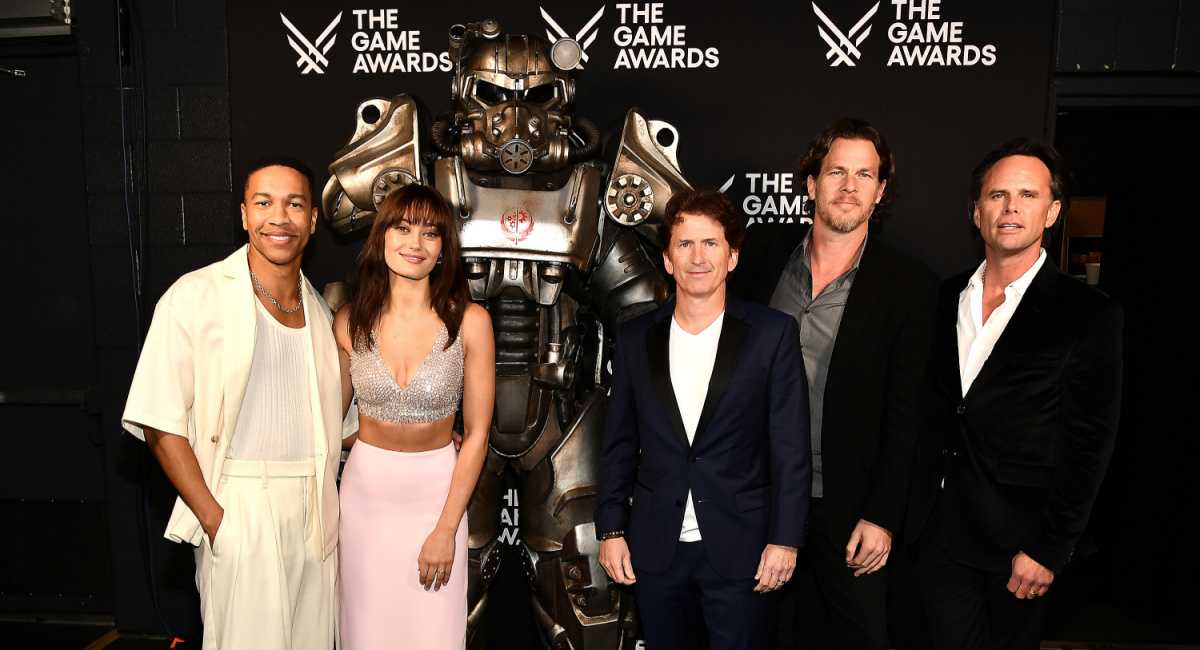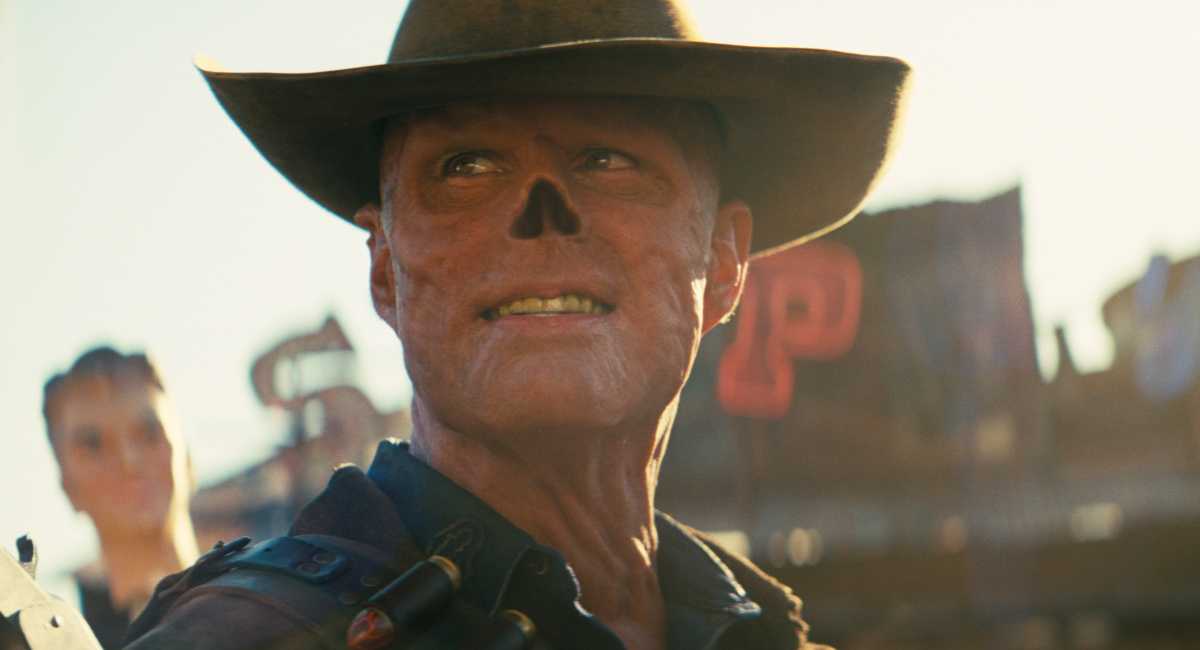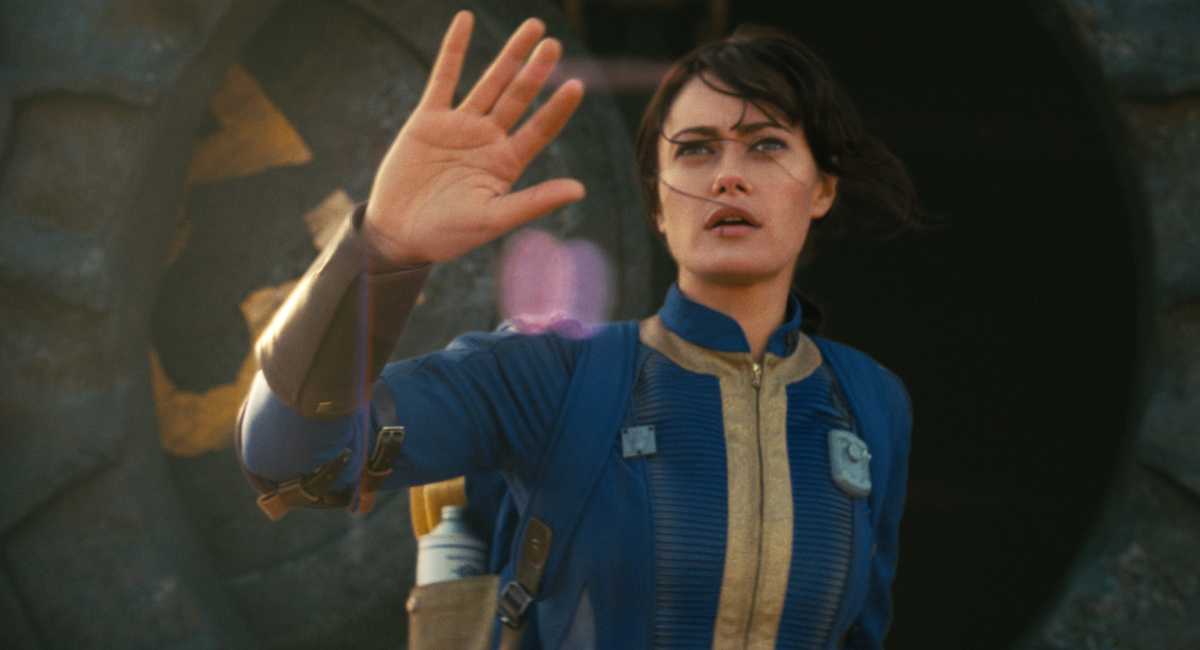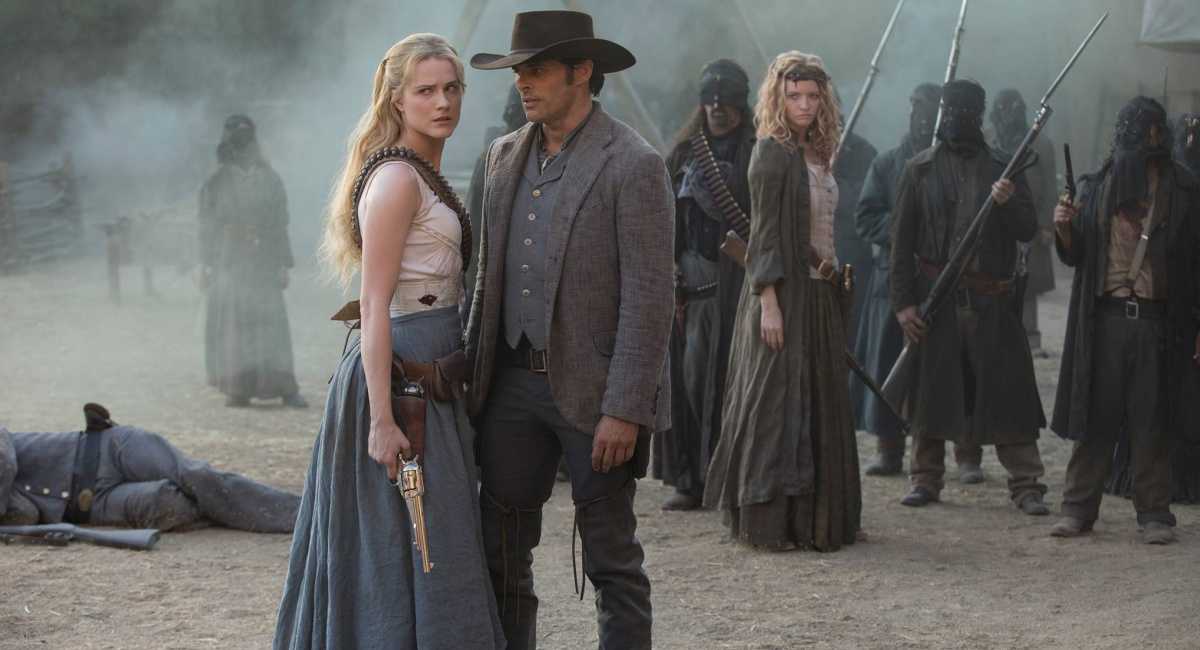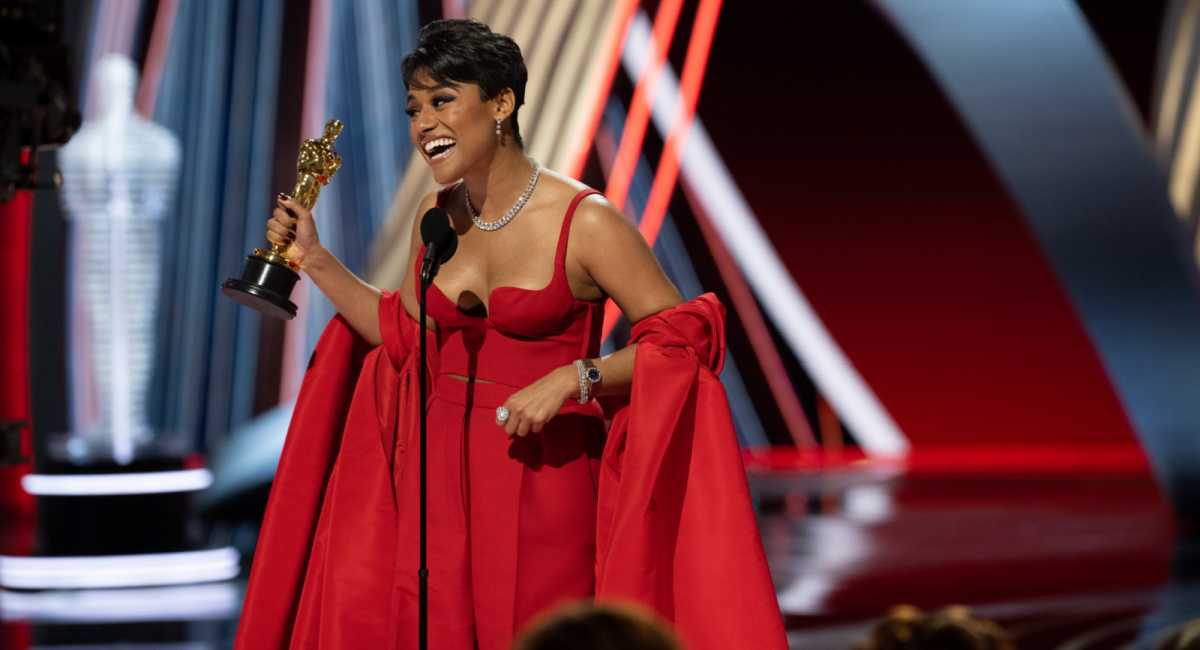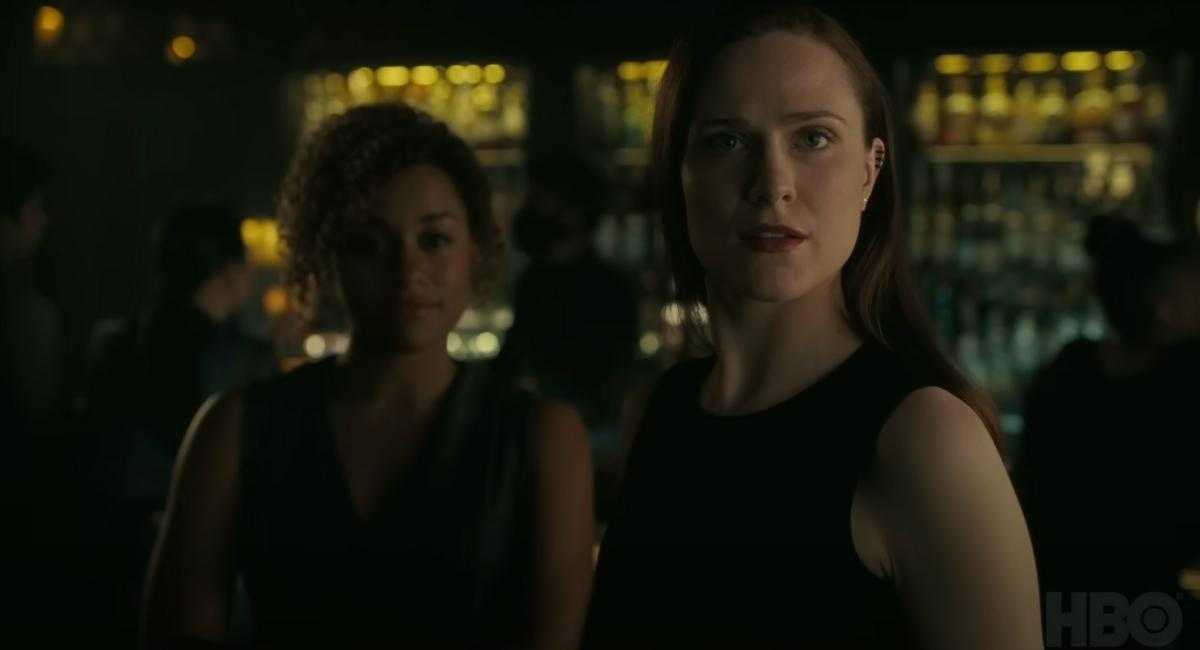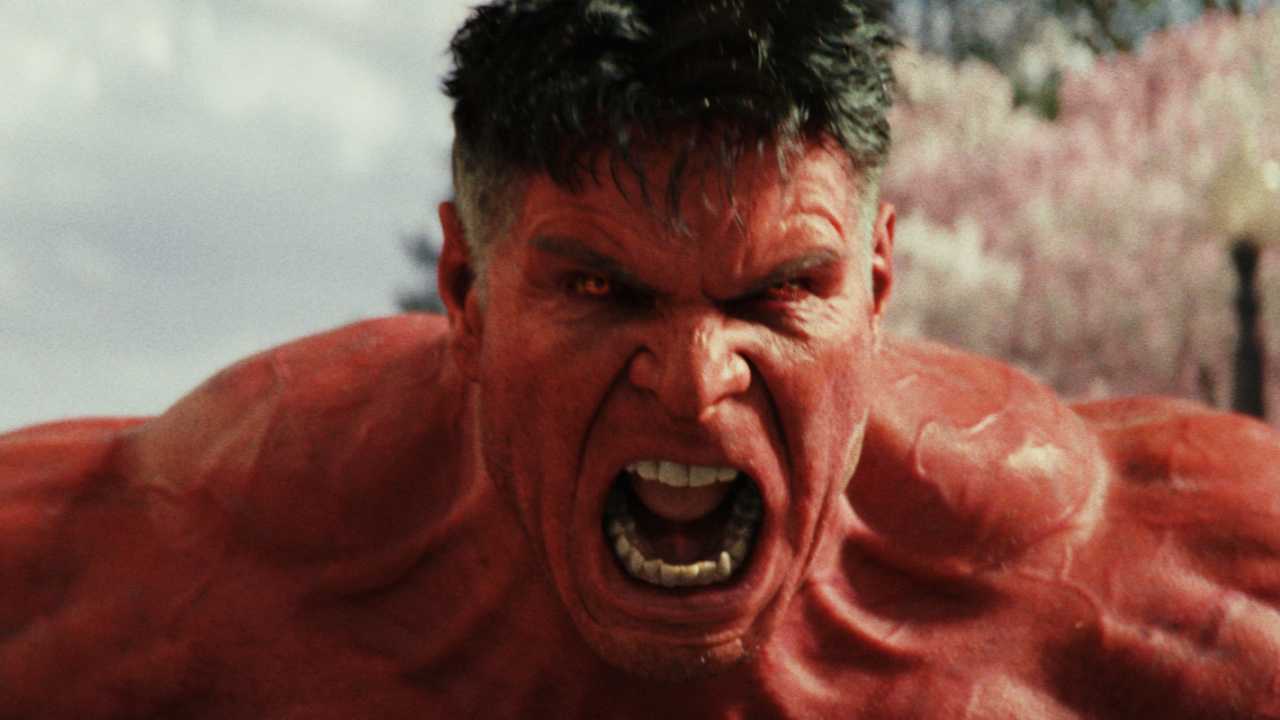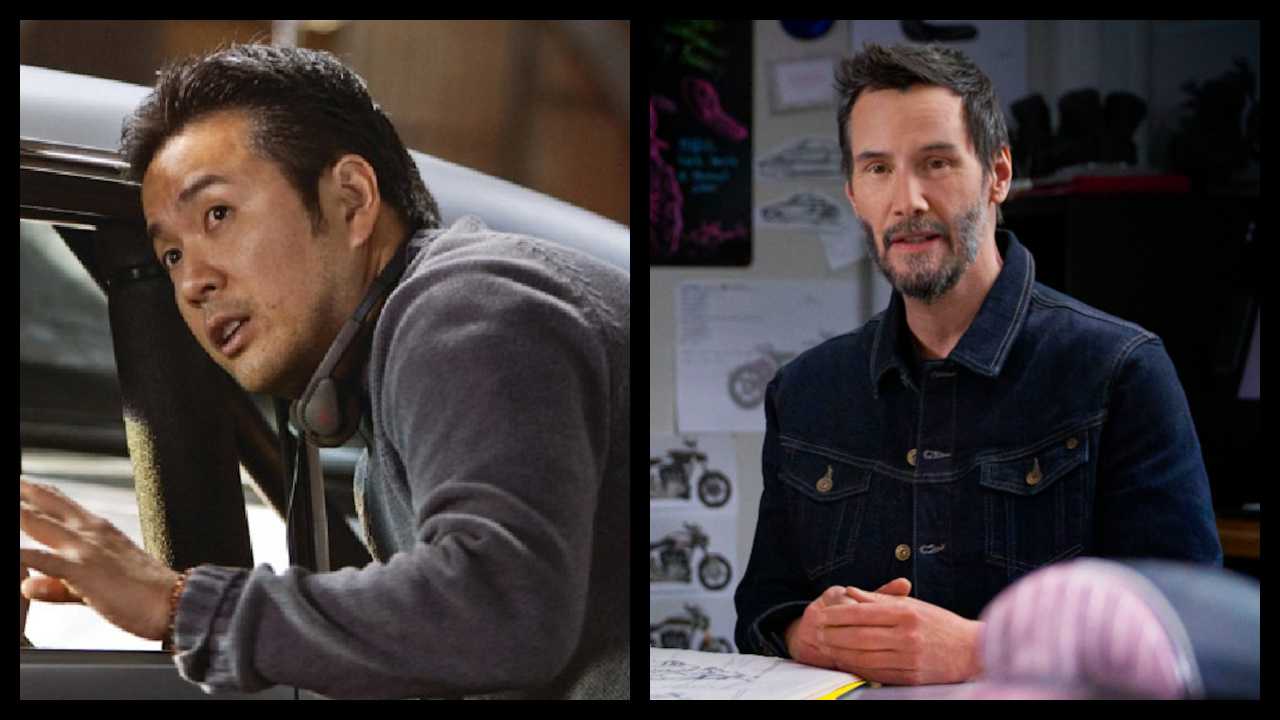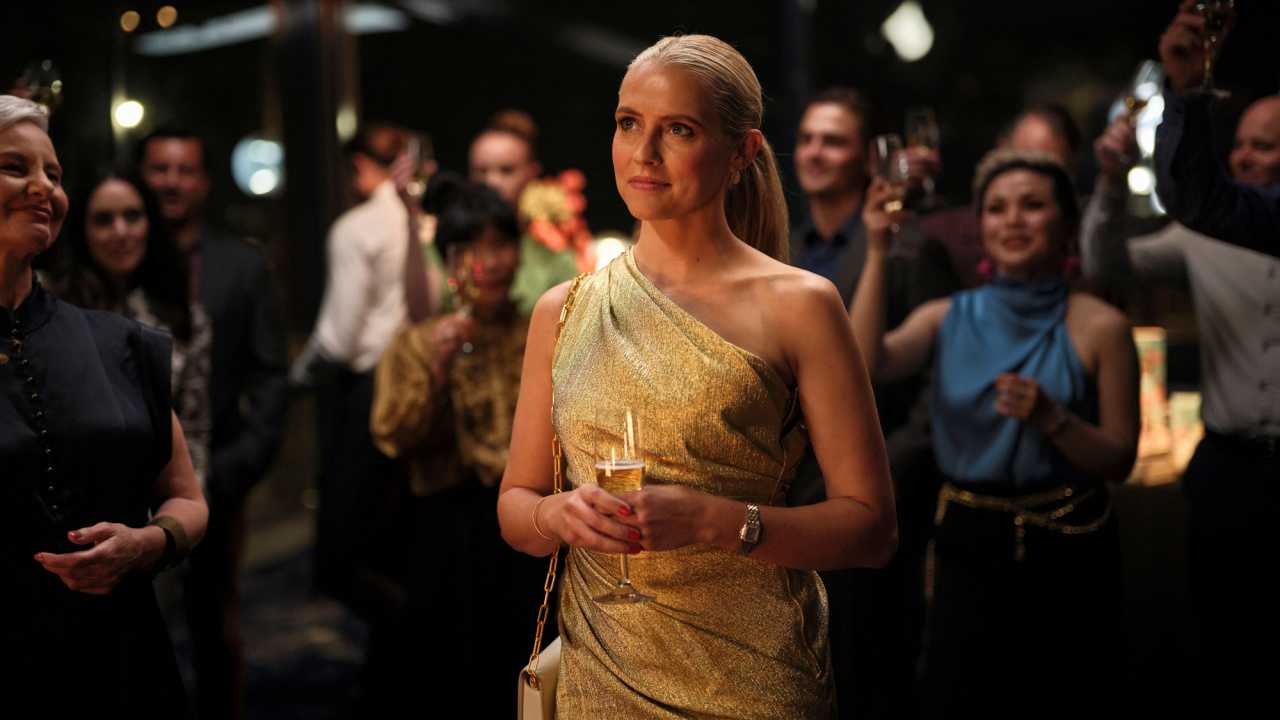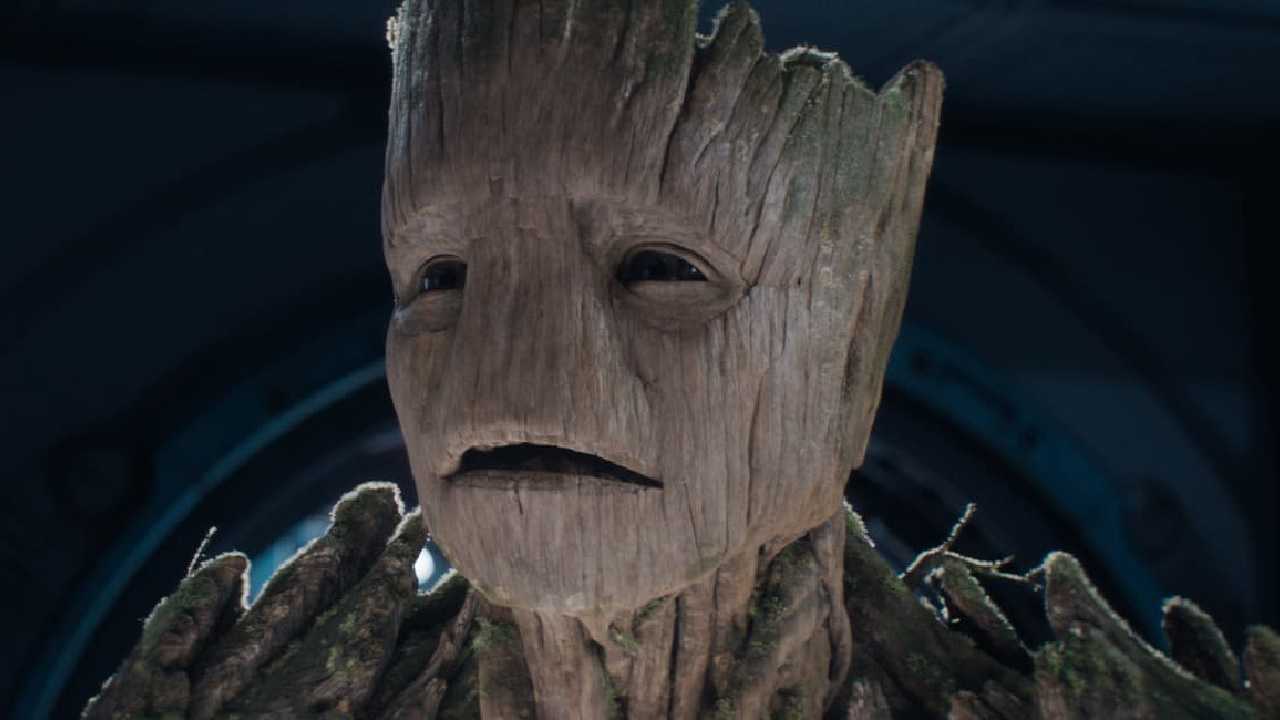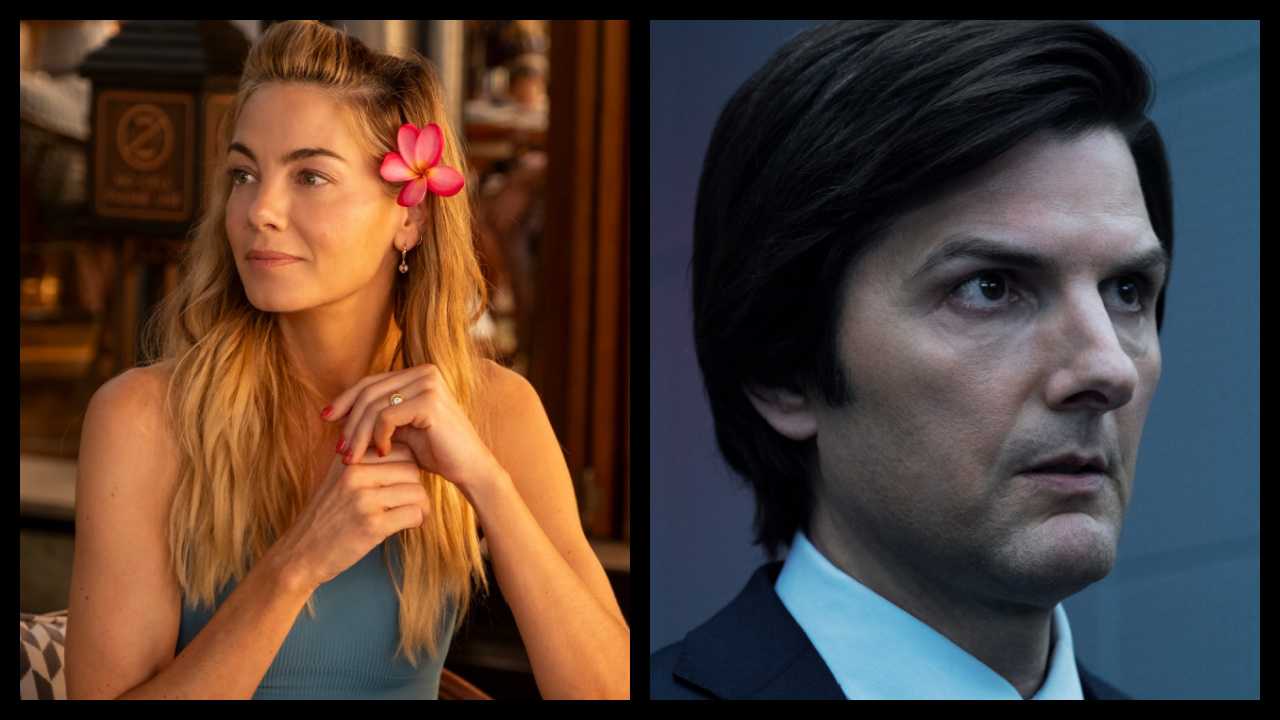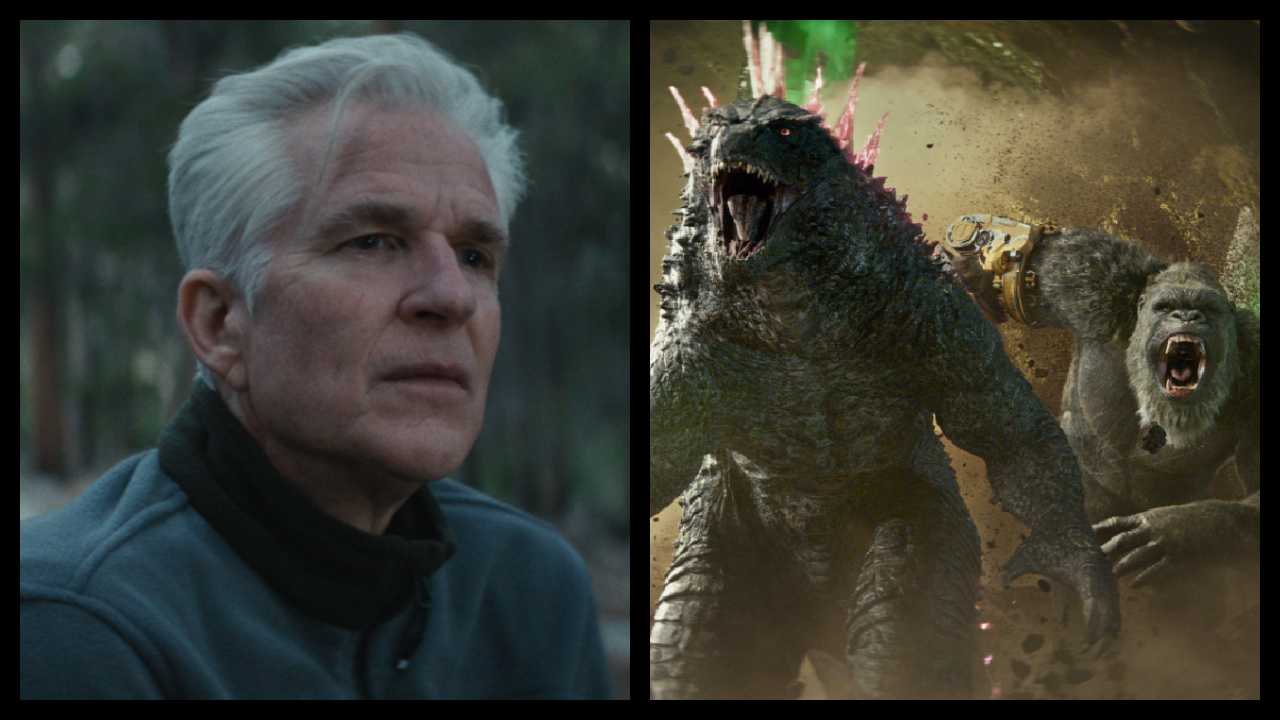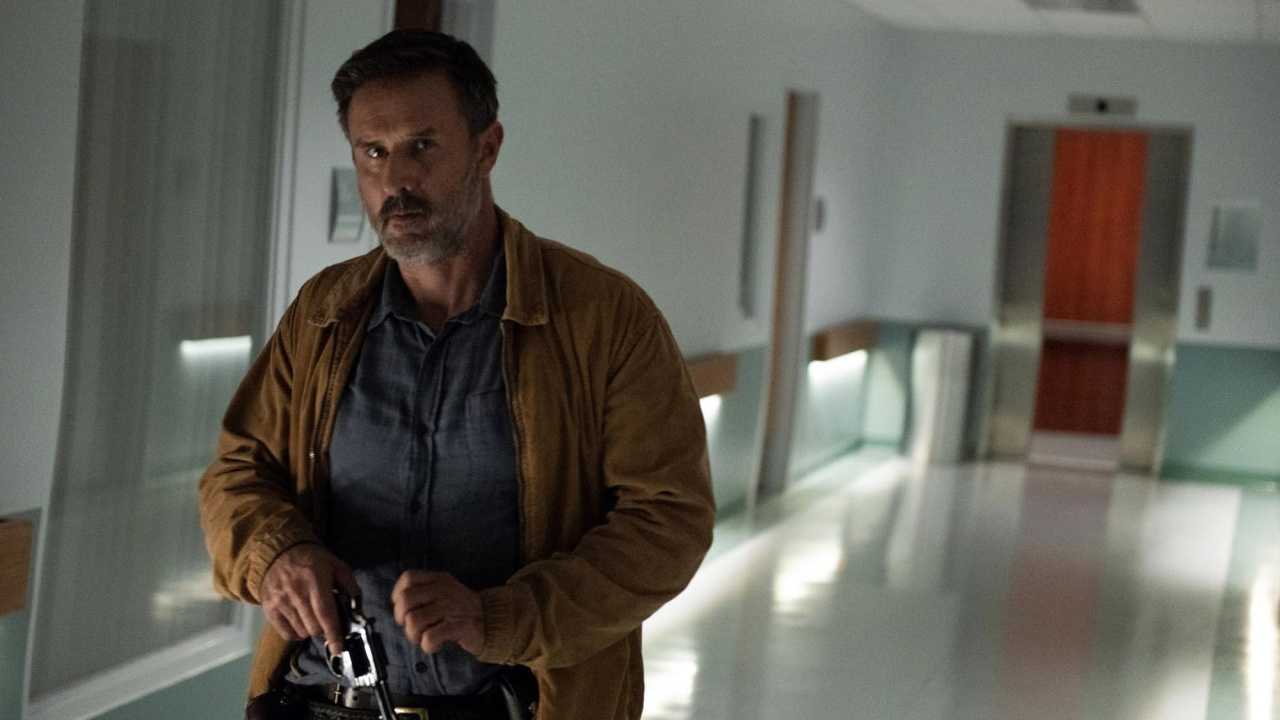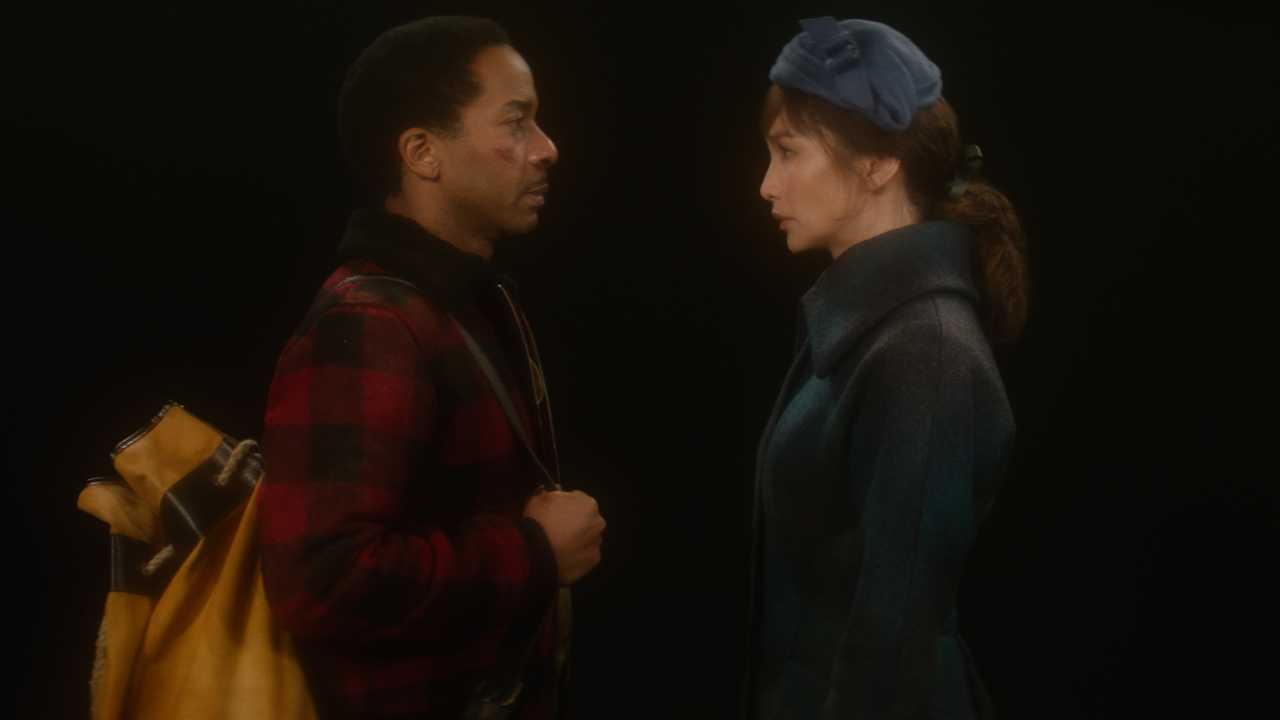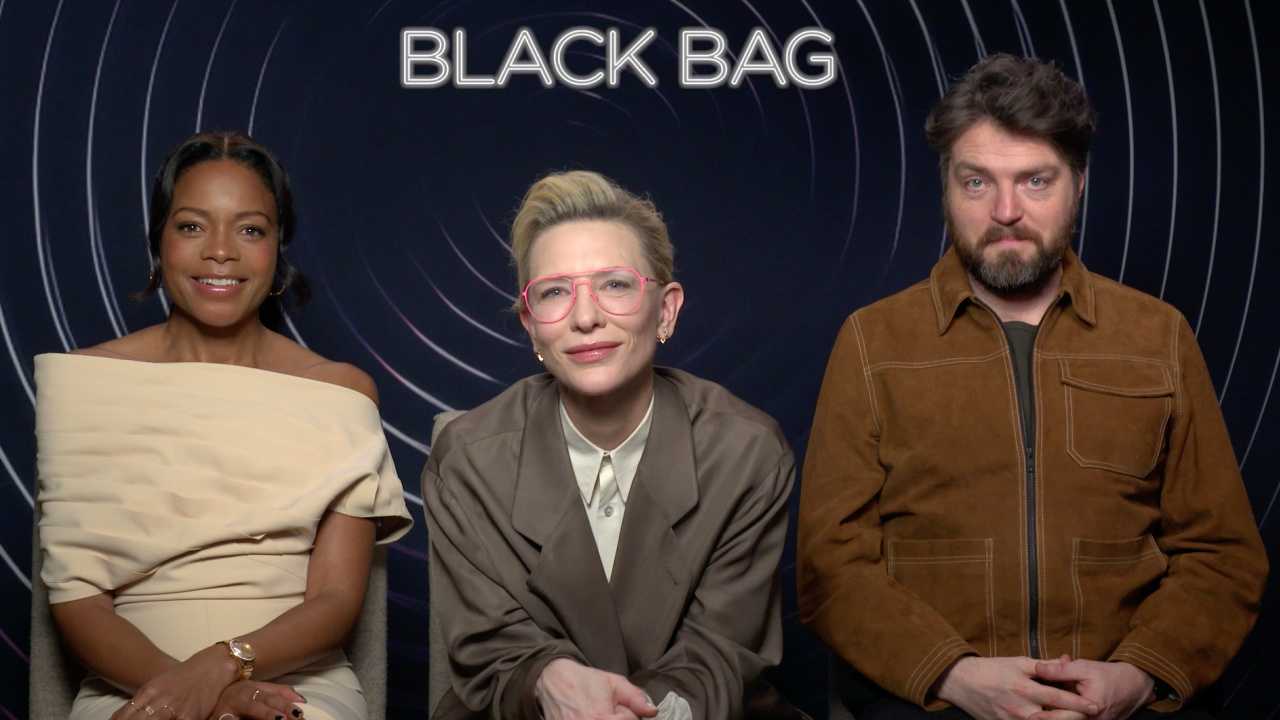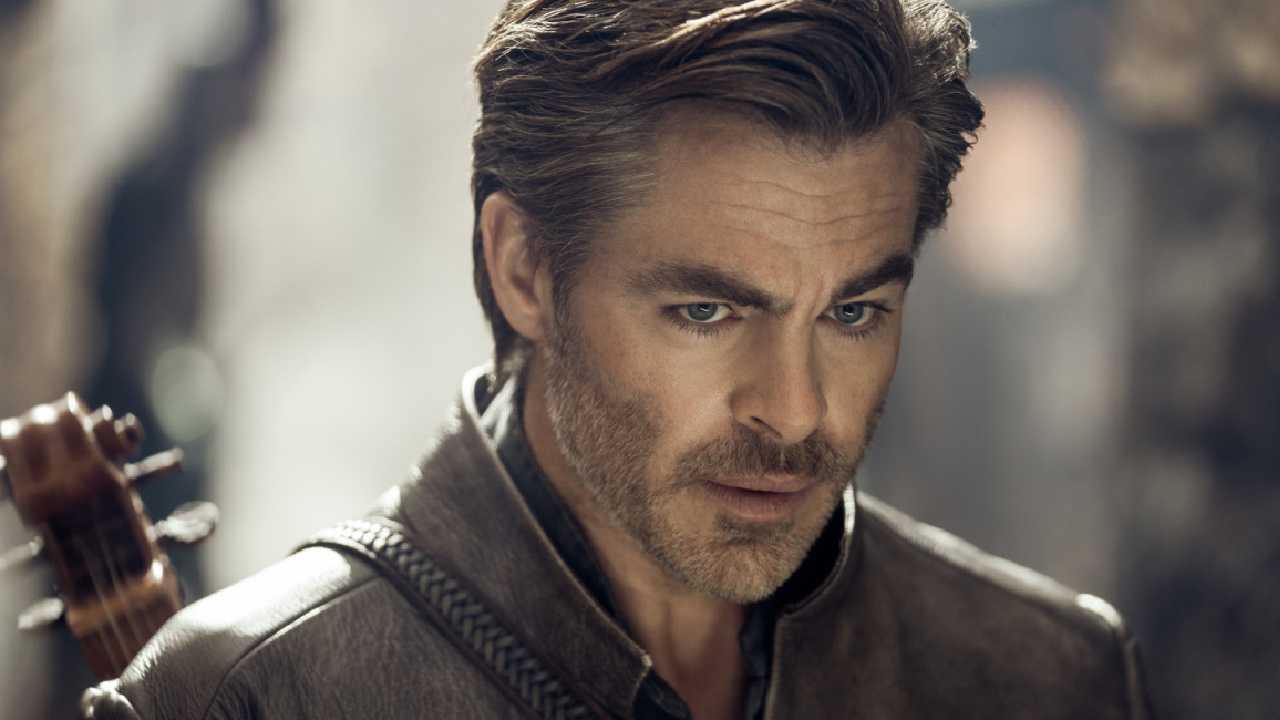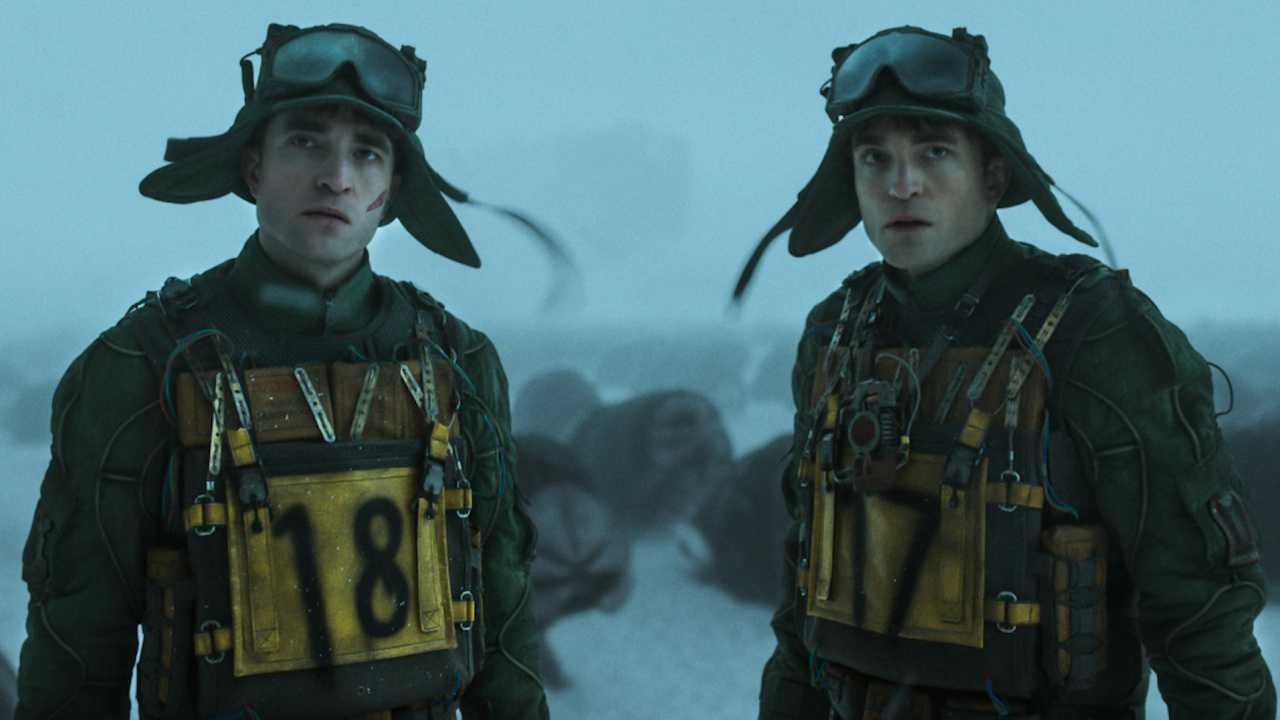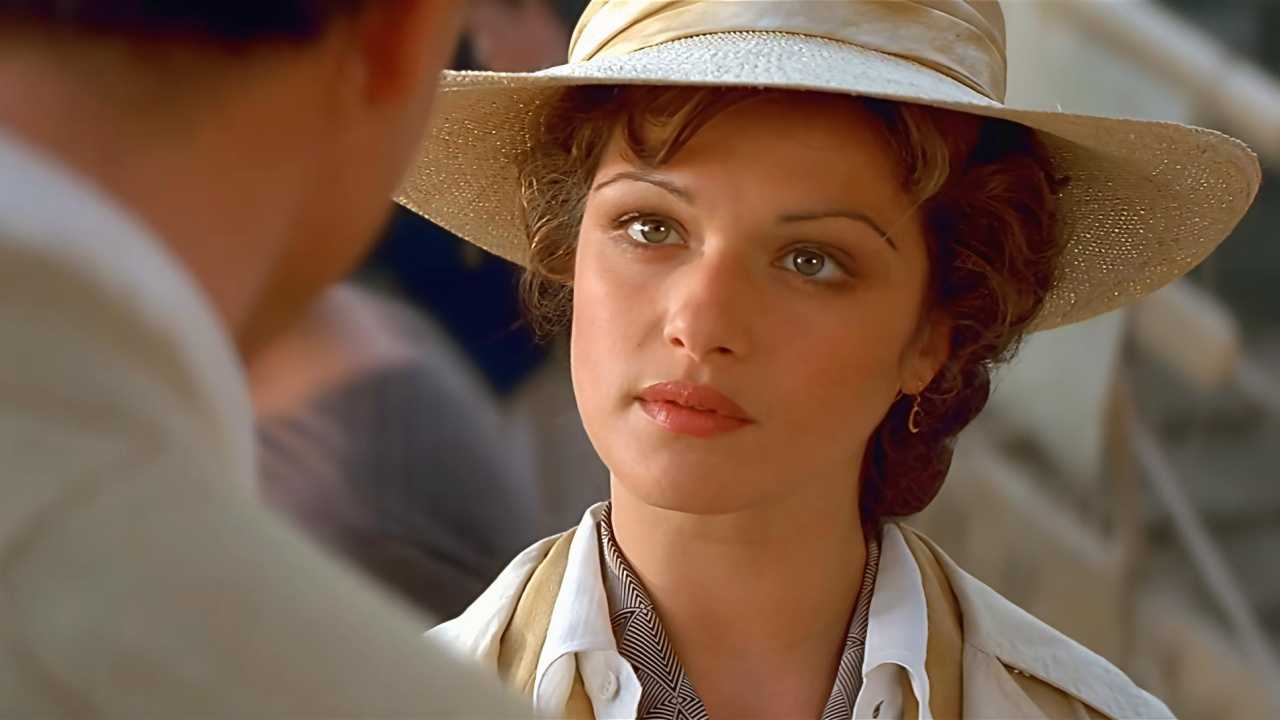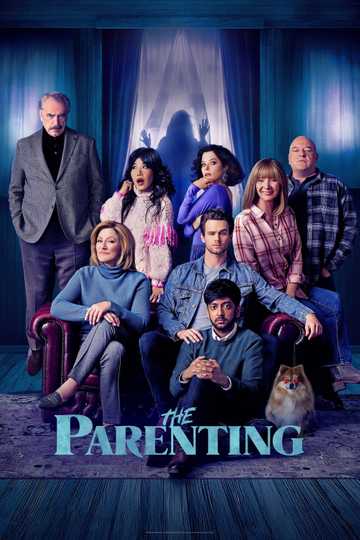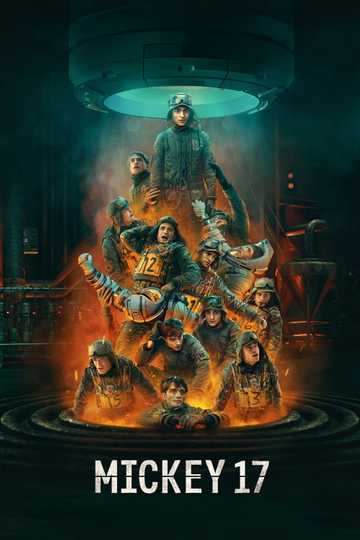James Marsden: 'Westworld' Will 'Rip the Rug Out From Under You'
If you watched the first episode of "Westworld," you more than likely have some thoughts about James Marsden's fresh-faced frontiersman Teddy Flood.
When Moviefone sat down with Marsden prior to the airing of the first episode of HBO's new sci-fi series, we both decided not to venture into spoiler-y territory; suffice it to say that our conversation hints at some aspects revealed in that initial outing that will have some relevance to those who watched it, while others waiting to binge may discover a few plotline clues.
So proceed at your discretion as the prolific, dashing actor -- best known for his stints in the "30 Rock" -- digs into the allure of cowboying up for the ambitious production and the recreated worlds he'd most wish to visit.
Moviefone: What was the thing, when "Westworld" came your way, that was the initial first hook, that made you say, "This is I think something I want to do"?
James Marsden: The model that I've always had if I ever wanted to sit down and look for a project to direct and bring back to the screen in some way, that may or may not have been a classic, I would look for material that was a really sharp and interesting concept that may be ... not, I would say, poorly executed, but something you can do something different with.
The original film is a great, wonderfully terrifying and entertaining film. Ultimately, the dimensions are, "Here's the theme of the park, and the robot sort of malfunctions and goes haywire and goes after the humans." There aren't many other themes to the film, like playing God and "what is consciousness?", and this existential crisis that the humans and the robots have.
These are sort of the things that we wanted to explore more, which made it really interesting for me when I spoke with Jonah [Nolan] on a Skype call, I was shooting in New Orleans. I was familiar with the original, but I hadn't seen it so he encouraged me to see it. He said "Just take the concept and what we're going to do with it is this, and we'll flip it and reverse it, and turn it on its head," so that was exciting. J.J. [Abrams] was involved. Jonah was writing. Jonah writing and directing. Most of the cast was already set, and I read the script and thought the potential paths and journeys that these characters can go on was so like vast and interesting.
As Lisa Joy said, it's not science fiction, it's science fact. Artificial intelligence is, like, here. One of my favorite lines from "Jurassic Park," actually, is Jeff Goldblum saying, "Your scientists spent so much time trying to figure out whether or not they could, they never stopped to think if they should." I think we're at that period now. So it's a very interesting subject to explore against the backdrop of this sometimes maybe morally bankrupt, violent playground.
But, like I said, I like the idea that Westworld is what you want it to be. You can be who you want to be. Your true character can be revealed, whether be it a noble person, or a debaucherous one, violently motivated. But it reveals who you are. So I liked that, and everything else we go to some very cool places after it all gets set up for the first episode.
As an actor showing up on set, what was more exciting: the Old West stuff, or the futuristic environment?
For me, it was the Old West stuff. It was jumping off of this real, however-many-ton locomotive that gets rolling into town, and shooting in these incredible landscapes in Utah around Arches National Park. You're out there on a horse, with a real gun, wearing a hat and chasing the fair maiden across these amazing plateaus, and having a helicopter follow you around.
It's like shooting a John Ford film -- without the helicopter, of course. It's epic in scale and size, and to sort of immerse yourself in that world, this sort of dirty, gritty, lawless land, was a lot of fun. As an actor, it felt like I was a guest -- I got a free VIP guest pass to the park, really, because I get to go and put on my chaps and my boots.
It kind of was that "Fantasy Island" quality when you guys to showed up.
Yeah, yeah! I mean, it ticked every box for me. It was like, HBO -- I love what they do, I love their commitment to content and material and the quality of production. Shoots here in LA -- I get to spend time with my kids. You shoot for about five or six months out of the year, then you can do whatever you want after that. And that it had the really grand potential to be something very special and unlike anything we've ever really seen before on TV. So I was like, "Where do I sign? I'm in."
When I spoke with Evan Rachel Wood, she told about how deep she went into AI research. Did you? Or did you just go with what was on the script page?
I tend to usually do that. Unless the character specifically calls for more research than the script provides, or more research than the creators and the producers can provide. I think, from Teddy's perspective, it serves him to not know everything that's around every corner. It served me as an actor to not have every answer to everything.
This is a massive jigsaw puzzle, this show. Evan very early on wanted to figure the whole thing out -- all her pistons were firing. I was like, "You are just like running around chasing your own tail right now! There's no way you're going to get it all." By about episode five or six, when we got the scripts, she was like, "I think I got some of it, some of the big ones." I was like, "What? I don't know about that."
I don't know -- I've just learned not to even try and speculate, because as soon as you go this way, Jonah and Lisa will subvert and rip the rug out from under you. I think, hopefully, that can be a fun thing for the audience to experience. But then Evan was pretty close, actually, as it turns out! But it's a fun, very enigmatic, sort of mysterious journey that these characters go on. It's a very exciting thing to be a part of. It feels very big.
Minus any technological glitches or moral conundrums, would you go to something as immersive as a Westworld if it existed?
I certainly would have a hard time resisting the curiosity about it. I think I would be really tempted to go. But maybe I'd be scared to see what that revealed about myself. I'm not sure. It is sort of tailored to the dark side a little bit.
What would be more interesting for me would be to with everyone I feel like I'm close with in my life, and see how they behave, from a voyeuristic vantage point, and see if they are the people that you really think they are, because it's interesting: when some people get in certain scenarios and certain environments, they do become different people, or they allow their character actually to reveal itself.
Is there a "'world" that would appeal to you more than, say, the Old West? If you could pick your world?
Yeah, in the original movie, it was like medieval and ancient Rome. That's an interesting question -- I don't know! I mean, like 12th Century England could be kind of cool. The sort of Napoleonic era. Boy, I don't know. I hadn't really thought about that, actually, what sort of era. I'd go back to the '60s, actually. I know that's not like -- it's just a big drug park, probably, with great music.
Sixties Rat Pack Vegas is where I would go.
Yeah, that'd be fun! That would be fun. You can go back to mobster times, like in the '30s, during Prohibition and all that. Could be a fun one to go back to. I still think the 20th century is probably -- I mean, because I lived in it -- one of the greatest of all time. The acceleration of what we had at the beginning of it to what we had at the end of it. It was like "Cars, flight, internet, the evolution of music" to such a great degree.
It was a great century, so I would probably stay in that century somewhere. I wouldn't really want to go run out and have, like, sh*tty water, and flies buzzing around and sticking in those showers. I like the modern conveniences of air conditioning and microwave ovens.
Almost everybody involved in this show comes primarily from film. This is the the first TV series for you in a good long time. What was the fun surprise of having this sort of broad canvas to work in?
Well, I think you said it. It's like a testament to material, that you have all these people that are Academy Award-winners and great film actors, and I think it says a lot about what HBO wants to do with their material. I feel like there's this gap, in the film world, with these $300/400 million action hero movies, some of which I was a part of and very grateful to be a part of, and then you've got the $5 million and under movies, which are mature storytelling and not expensive to make. But there's nothing really in between. There's very little risk being taken, anything over $5 million.
And I feel like now, with TV, with HBO and some of the premium cable networks, you're afforded the opportunity to really go dark, to really challenge the audience, to really do something original and different. I think that's why Tony [Hopkins] and Ed [Harris] and Evan and Thandie [Newton] and Jeffrey [Wright] and everybody were attracted to this. The actors, and the artists, and the writers, and the directors, they all follow where the good material is.
I think we all saw something really special in this. As an actor, you want that great safety net of being in good hands, like with J.J. and Jonah. So I think that's how it all came together, if that answers your question. I'm not sure that [it] did. But yeah, it feels like we're just together making a very epic, big ten-hour film.
New episodes of "Westworld" air Sunday nights on HBO.

